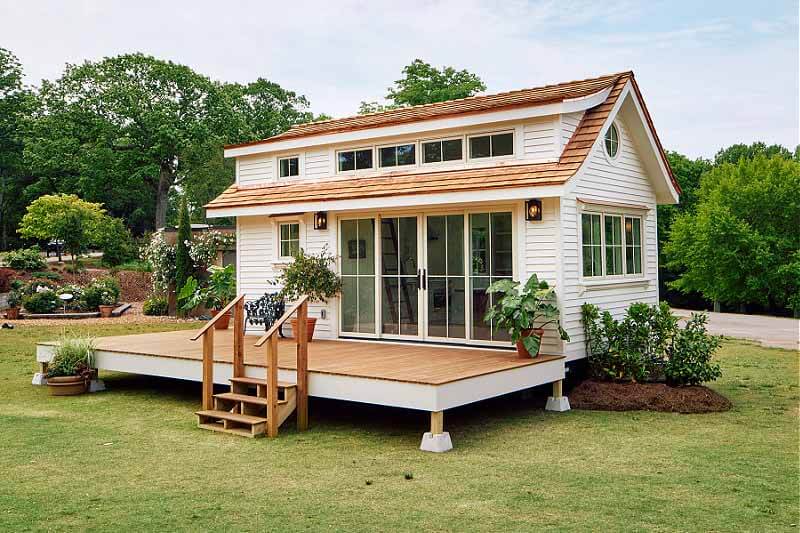Are you torn between investing in real estate or stocks? While both options can offer potential benefits, there’s one choice that stands out as the superior investment: real estate. From generating passive income to building equity and enjoying tax advantages, property investments offer a wealth of advantages over stock market investments. So if you’re looking for a long-term strategy that can help secure your financial future, read on to discover why real estate is the right choice for you.
The Pros and Cons of Real Estate Investments
There are a few key reasons why real estate investments may be a better choice than stocks when it comes to long-term wealth accumulation.
First and foremost, property values tend to grow over time, while stock prices can fluctuate wildly. This means that over the long term, investing in property will produce a larger overall return than investing in stocks.
Secondly, unlike stocks, which can be sold at any time for a profit or loss, property cannot simply be sold on the open market and thus has more stability as an investment. This is particularly important if you’re looking to build up your wealth slowly over time rather than see it all go into one big lump sum.
Of course, there are also some disadvantages toproperty investments that should be taken into account before making a decision. For example, since property values fluctuatebased on market conditionsand canbe affected by many external factors (such as political unrest), theycan often be less predictablethan stocks and therefore riskier. Additionally, while it’s possible to borrow againstpropertyvaluesto increaseyourinvestmentdepth, this is not always possible with stock holdings. Finally, while property ownership typically offers security andpeace of mindin terms ofaccessingthepropertyandmaintainingitovertime (assuming you don’t lose money on it),thisisnotalwaysthecasewithstockmarketinvestmentswhereyoucouldlose your entire stake regardlessofhowwellthecompany performs.Overall then,, real estate investments may
The Different Types of Real Estate Investments
There are many types of real estate investments, and each offers its own unique benefits. Here are four different types of real estate investments to consider:
1. Property Investment
A property investment is buying and owning a piece of land or property. The main advantage of this type of investment is that it’s a long-term financial strategy that provides stability and growth over time. Property prices can go up and down, but over the long term, the return on a property investment will generally be higher than any other type of investment.
2. Stock Investment
A stock investment is buying shares in a company or investing in a mutual fund that invests in stocks. The main advantage of investing in stocks is that they offer the opportunity for high returns if the stock market goes up, but they also carry risk if the stock market crashes. Over the long term, stock investments tend to provide greater returns than property investments, but they can also be more volatile.
3. Bond Investment
A bond investment is buying a bond from a government or corporate issuer. The main advantage of bonds is that they offer stability and predictable returns over time, regardless of what happens with the stock or bond markets. Bonds are also less volatile than stocks, so they’re not as risky as investment options like stocks can be.
4. Alternative Asset Category
An alternative asset category includes things like real estate funds (which invest in different types of real estate), hedge funds (which invest
Choosing the Right Real Estate Investment
When it comes to investing your money, there are a few things you should keep in mind. The first and most important decision you have to make is what kind of investment you want to make.
Some people prefer stocks because they believe that the stock market is unpredictable and can go up or down in value at any time. This can be a risky proposition, as stock markets have had many crashes in the past.
Property investing, on the other hand, is a much more stable form of investment. The returns you get from property investments tend to be more consistent than those from stocks, meaning that over time you will likely see a greater return on your investment with property than with stocks. This is because property values generally don’t fluctuate as much as stock prices do.
A final consideration when investing your money is how long you want to hold onto your investments for. With stocks, if the market goes down then your losses will pile up quickly. With property however, if the market dips then you may only lose a small percentage of your total investment – or even no money at all if the property goes into foreclosure but still has some value left inside it.
How to Invest in Real Estate
Investing in real estate is a superior choice over investing in stocks, according to many financial experts. Here are five reasons why:
1. Property values always rise over time. This is not always the case with stocks, as they can experience sharp dips and rallies. In fact, one of the biggest dangers of investing in stocks is the fact that they could lose value even if you hold them for long periods of time. However, property values tend to continue rising over time regardless of market conditions. This means that even if you sell your property later on down the line and receive less than you paid for it, your overall investment will still be profitable due to the rising value of the property at that point in time.
2. Property ownership provides you with a passive income stream. If you own stocks, you will need to actively manage your investments in order to make sure that they grow over time – this can be difficult if you have other commitments such as a full-time job or family responsibilities. In contrast, owning property allows you to sit back and watch your money grow – without having to do anything else!
3. Property represents a safer investment option than stock markets. While stock markets can be volatile, property markets are much more stable overall. This is because when investors invest in property, they are typically buying an asset that lasts indefinitely (in contrast, shares in companies often expire after a certain period of time). As such, there is usually less risk involved when
The Different Types of Real Estate Properties
There are many different types of real estate properties available to investors, each with its own unique set of benefits and drawbacks. This article will outline the three most common types of real estate: residential, commercial, and land.
Residential Properties
Residential properties are typically homes or apartments that are owned by individuals, families, or organizations. They offer a number of advantages over other real estate investments, including stability (due to low turnover rates), tax benefits (most mortgages are tax-deductible), and the potential for capital appreciation. However, residential properties tend to have lower returns than commercial or land properties.
Commercial Properties
Commercial properties are businesses that are located in buildings designed for commerce. They offer a higher rate of return than residential properties due to their higher rental income and greater potential for growth. Commercial property can be divided into two categories: leased and owned. Leased businesses usually have shorter terms than owned businesses, making them more risky but also offering the opportunity for greater short-term profits.
Land Properties
Land properties are pieces of property that do not contain any housing or other structures. They can be purchased as undeveloped land or developed into homes, offices, or other commercial ventures. Land is often less volatile than other types of real estate investment and offers a steadier stream of income over time due to its long term value potential.
Buying a Property: The Pre-Purchase Checklist
When you are deciding whether or not to buy a property, there are several important factors that you should consider. Here is a checklist of some key items to review before making your purchase:
1. Location – first and foremost, make sure that the property you want to buy is in a desirable location. It is important to remember that real estate prices vary greatly from area to area, so it is important to do your research to find the right property for your needs.
2. Size and Condition – another important consideration is the size and condition of the property. Make sure that the size of the house is appropriate for your needs and that all appliances, fixtures and wiring are in good working order. Also, be sure to inspect the roof, basement and exterior walls for damage or potential repairs.
3. Financing – once you have determined which property you would like to purchase, you need to determine if you will be able to afford it. Make sure to investigate all available financing options, including borrowing money against the equity in your home (i.e., using a reverse mortgage), as well as obtaining grants or low-interest loans from government agencies or banks.
4. Home Warranty – another important consideration is buying a home with a home warranty included. This will protect you from any serious problems with the home that may arise after you move in (such as structural issues or water damage).
Closing on Your Property: The Post-Purchase Checklist
1. Make sure all your closing documents are in order.
2. Verify the property is still available and meet all qualifications requirements.
3. Get insurance on the property. This will protect you in case of damages or losses during your ownership period.
4. Make sure all appliances, wiring, and plumbing are in working order before moving in.
5. Check the soil moisture levels to make sure they are within acceptable guidelines, then get a contractor to do an irrigation check to ensure plants are getting adequate water supply.
6. Get fresh paint or new flooring installed as needed; remember to factor these costs into your overall budgeting process!
7. Enjoy your new home!
Maintenance and Upkeep of Your Property: What You Need to Know
Property is a classic long-term investment. Unlike stocks, which can be volatile and may offer short-term financial returns, property tends to provide smoother returns over time. That’s because property values generally increase over time, which can result in larger overall returns than you would earn from stock investments.
When you buy a property, you’re also getting into the role of landlord. This means you’ll need to invest time and money in maintaining your property – whether it’s fixing up the exterior or keeping the interior clean and updated. Here are some tips for keeping your property in good condition:
1. Get a maintenance contract: When you buy a property, make sure to get a maintenance contract that specifies what needs to be done and when it needs to be done. This will save you time and hassle down the road.
2. Regularly check for leaks: Make sure there are no water leaks around the exterior of your home – this could lead to costly repairs later on. Check for water damage inside as well – this can occur if there’s a leak or if pipes burst inside the house.
3. Maintain landscaping: Keep your landscaping growing lush and green by regularly watering it and trimming any stray vegetation. Overgrown plants can attract pests and diseases, which can damage your home’s foundation or windowsills.
4. Keep gutters clean: Gutters collect rainwater and debris — both of which can lead to roof damage or other
Conclusion
In today’s economy, it can be difficult to make a clear decision about which investment is right for you. But when it comes to long-term financial stability and guaranteed growth, there is simply no comparison between real estate and stocks. While both investments have their benefits and drawbacks, property investment is the clear winner in the race to build wealth over time. So if you are looking for an investment that will provide you with security and stability for years to come, look no further than real estate!










